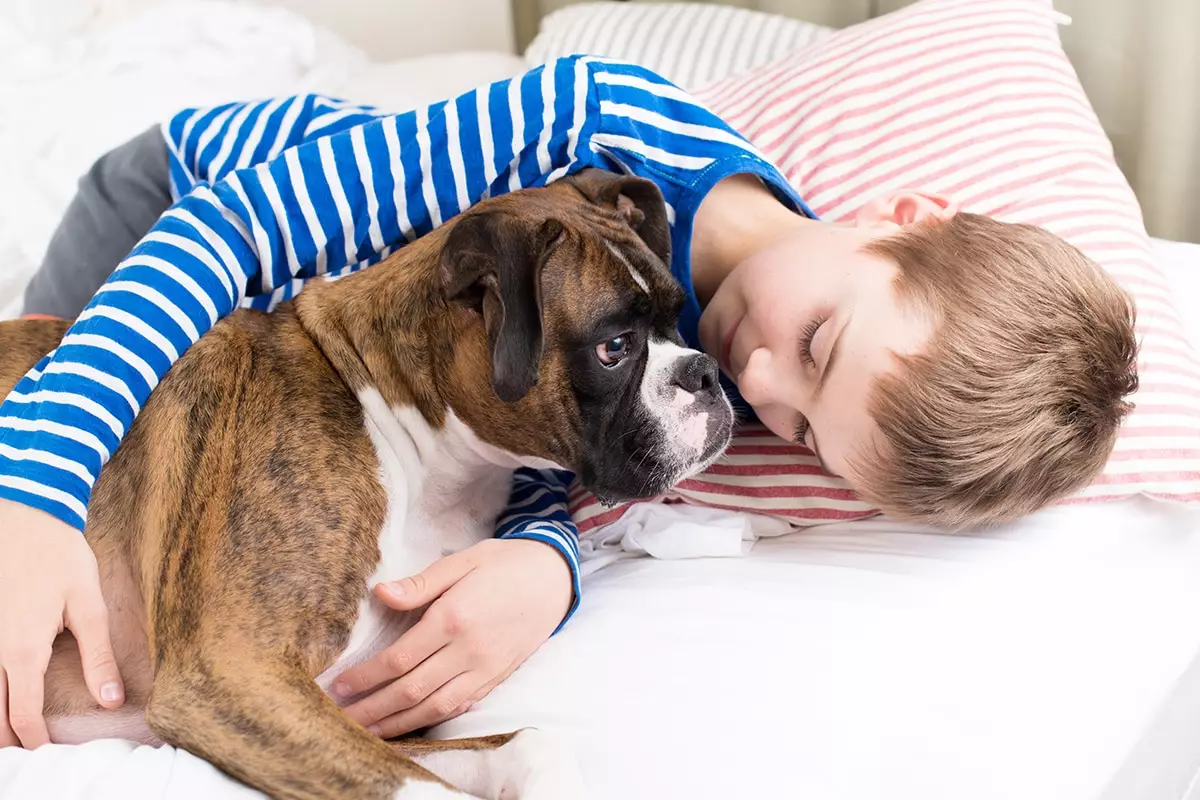Dogs possess an innate ability to sense human emotions without uttering a single word. Their silent understanding speaks volumes, revealing a kind of intuitive emotional intelligence that humans often admire but struggle to emulate. Across breeds and personalities, dogs seem to hold a gentle wisdom—knowing precisely when to offer a nudge, when to bring a favorite toy as a gesture of cheer, or when to simply rest their head in your lap in moments of vulnerability. These aren’t merely actions—they are conditioned responses to genuine emotional cues, reflecting a deep, almost spiritual connection rooted in unconditional love. When we contemplate their roles in our lives, it becomes clear that dogs serve as emotional anchors, offering steadiness amidst chaos and comfort during hardship. This silent empathy often surpasses human understanding, reminding us of the raw, pure form of love rooted in presence rather than words.
Breed-Specific Deep Loyalties and Their Unique Expressions of Love
Different breeds demonstrate their loyalty in distinctive ways, shaped by generations of selective breeding focused on traits like protection, companionship, or work ethic. For example, Labrador Retrievers are the quintessential Velcro dogs—warm-hearted, affectionate, and eager to stay close. Their jovial personalities are not just about companionship but about creating a sense of security and joy in daily life. Similarly, German Shepherds combine intelligence with fierce protectiveness, forming an unbreakable bond with their owners that often borders on a deep sense of duty. Their alertness makes them natural guardians, but underneath that protective exterior lies a tender heart.
Golden Retrievers exemplify gentle devotion—always attuned to their owner’s emotional states, ready to provide comfort simply through their presence. Boxers, with their goofy and lively nature, forge bonds through enthusiastic engagement, always eager for play and affection. Meanwhile, breeds like Akitas and Shelties showcase a quieter, more reserved loyalty—demonstrating their commitment through calm companionship and watchful attention. Rottweilers may often be misunderstood, but their loyalty manifests in fierce protection and loyalty to family, showing that love is often cloaked in strength and silence. These breeds challenge stereotypes, illustrating that loyalty can be expressed in myriad forms—from exuberant joy to composed guardianship.
Emotional Support as the Heartbeat of Canine-Love
What makes dogs truly remarkable isn’t just their loyalty or intelligence but their role as emotional lifelines. For many, dogs transcend the typical pet-owner dynamic; they become close confidants, silent therapists, and unwavering supporters. In moments of happiness—when joy fills a room—they celebrate with us. During times of grief or anxiety, they are present, soaking in the silent language of our pain and offering their steady companionship without judgment. Breeds like Shelties and Great Pyrenees exemplify this quiet support—they aren’t loud or overly demanding but simply exist as a calming presence, embodying patience and understanding.
The emotional closeness shared with dogs is a two-way street. The act of caring for and being cared for by a dog fosters a sense of mutual trust and vulnerability that’s often absent in human relationships. Dogs understand in their own way that we’re complex beings, and they love us not in spite of our imperfections but because of them. Their loyalty persists through life’s unpredictable chaos, reminding us that sometimes, the simplest gestures—like a wagging tail or a gentle nuzzle—are the most powerful expressions of love and reassurance.
Challenge and Critique: Is Our Perspective Too Romanticized?
While the narrative of dogs as perfect, unwavering companions may evoke feelings of warm fuzziness, a more critical appraisal reveals some complexities. Not all dogs display the same loyalty or emotional sensitivity—it varies greatly because of breed tendencies, individual personalities, and life experiences. Idealizing dogs as silent, intuitive beings might overlook the importance of mutual effort in building meaningful relationships. Dogs need proper training, socialization, and understanding—traits that require us to be responsible and attentive.
Furthermore, the romanticized notions often gloss over the challenges that come with dog ownership: behavioral issues, health concerns, and the emotional labor involved in caring for a living, breathing creature. It’s easy to attribute a saint-like patience or wisdom to dogs, but they are also creatures of instinct and limits. Recognizing this is crucial—it prompts us to approach our relationships with dogs with humility and genuine commitment rather than sentimentality. Too often, we romanticize these bonds, setting unrealistic expectations that can lead to disappointment or neglect if their needs are overlooked.
Final Reflections: Love That Transcends Words
Despite these complexities, what remains undeniable is the transformative power dogs have in our lives. Their loyalty and intuitive love serve as a mirror for our best qualities—a reminder of what selfless devotion looks like. They teach us patience, empathy, and unconditional acceptance, qualities that the human world often struggles to uphold. The bond with a dog, rooted in silent understanding and gentle love, challenges us to be better, more present versions of ourselves.
Importantly, acknowledging the imperfections in this relationship doesn’t diminish its depth; instead, it emphasizes authenticity. Dogs aren’t just passive recipients of our care—they actively shape our capacity to love and connect. Their presence, quiet and unwavering, is a testament to the truth that sometimes, the most profound love needs no words but simply the courageous act of showing up, day after day. In this way, dogs remain not just companions but the living embodiment of love’s purest form—steadfast, gentle, and endlessly forgiving.

